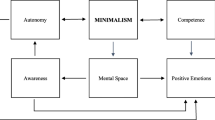Abstract
This article presents a critical analysis of the views of Michael Sandel on human enhancement in his book The Case Against Perfection (2007). Sandel argues that the use of biotechnologies for human enhancement is driven by a will to mastery or hybris, leading to an ‘explosion of responsibility’ and a disappearance of solidarity. I argue that Sandel is using a traditional concept of solidarity which leaves little room for individual differences and which is difficult to reconcile with the modern trend towards individual autonomy and cultural heterogeneity. With reference to the sociology of Giddens, I argue that the ‘explosion of responsibility’ can be considered an expression of the insecurity in modern society and the need for reflexivity in personal and social life. I argue that the need for reflexivity is a driving social and cultural force behind the interest in human enhancement, and that this trend can go together with a commitment to take care of the needs of others. I agree with Sandel that there is a risk that human enhancement may develop into ‘hybris’, particularly when enhancement is driven by scientism and a naturalist reduction of human values to neurological processes. Enhancement based on scientism will threaten solidarity defined by Honneth as an interactive relationship aimed at the mutual recognition of individual identities in relation to a shared value horizon. I will call for a reflective approach in which human enhancement technologies are explored in the context of a ‘system of reference’. Such a reflective approach will help to protect against the hybris of scientism and to maintain solidarity with vulnerable groups.
Similar content being viewed by others
References
Bellah, Robert, Richard Madsen, William Sullivan, Ann Swidler, and Steven Tipton. 1985. Habits of the Heart. Individualism and Commitment in American life. New York: Harper and Row.
Benhabib, Seyla. 1992. Situating the Self. Gender, Community and Postmodernism in Contemporary Ethics. New York: Routledge.
Brüne, Martin. 2007. On human self-domestication, psychiatry, and eugenics. Philosophy, Ethics, and Humanities in Medicine. 2: 21. https://doi.org/10.1186/1747-5341-2-21.
Dean, Jody. 1996. Solidarity of strangers: Feminism after identity politics. Berkeley: University of California Press.
Douglas, Tom. 2011. Moral enhancement. In Enhancing Human Capacities, ed. Julian Savulescu, Ruud ter Meulen, and Guy Kahane, 467–485. Chicester: Wiley-Blackwell.
Durkheim, Emile. 2014 (1893). The division of labor in society. Edited and with a new introduction by Steve Lukes. Translation by W.D. and Hall. New York: Free Press.
Elliott, Carl. 2003. Better than Well. American Medicine Meets the American Dream. New York: W.W. Norton & Company.
Elliott, Carl. 2011. Enhancement technologies and the modern self. The Journal of Medicine and Philosophy 36: 364–374.
Etzioni, Amitai. 1998. Introduction. In The Essential Communitarian Reader. The Essential Communitarian Reader, ed. Amitai Etzioni, ix–xxiv. Lanham: Rowham & Littlefield Publishers.
Giddens, Anthony. 1990. The Consequences of Modernity. Cambridge: Polity Press.
Giddens, Anthony. 1991. Modernity and Self-Identity. Self and Society in the Late Modern Age. Cambridge, MA: Polity Press.
Honneth, Axel. 1995. The Struggle for Recognition. The Moral Grammar of Social Conflicts. Cambridge, MA: Polity Press.
Jotterand, Fabrice. 2016. Moral enhancement, neuroessentialism, and moral content. In Cognitive Enhancement: Ethical and Policy Implications in International Perspectives. Ed. Fabrice Jotterand and Veljko Dubljevic. Oxford Scholarship Online. https://doi.org/10.1093/acprof:oso/9780199396818.0001.
Kymlicka, Will. 2002. Contemporary Political Philosophy. An Introduction. 2nd ed. Oxford: Oxford University Press.
Lasch, Christopher. 1979. The Culture of Narcissism. American Life in An Age of Diminishing Expectations. New York: Warner Books.
Lev, Ori. 2011. Will biomedical enhancements undermine solidarity, responsibility, equaliy and autonomy? Bioethics 25: 177–184.
Lukes, Steven. 2014. Introduction to this edition. In Emile Durkheim, The Division of Labor in Society, xxv–xlvi. New York: Free Press.
Meulen, Ruud ter. 2010. Dignity, posthumanism and the community of values. Answer to Fabrice Jotterand and Nick Bostrom. American Journal of Bioethics 10: 69–70.
Meulen, Ruud ter. 2017a. Solidarity and Justice in Health and Social Care. Cambridge: Cambridge University Press.
Meulen, Ruud ter. 2017b. Is human enhancement a threat to solidarity? Acta Philosophica 26: 307–322.
Meulen, Ruud ter, Wil Arts, and Ruud Muffels. 2001. Solidarity, health and social care in Europe. Introduction to the volume. In Solidarity in Health and Social Care in Europe. Philosophy & Medicine, ed. Ruud ter Meulen, Wil Arts, Ruud Muffels. Vol. 69, 1–11. Dordrecht: Kluwer Academic Publishers.
Munz, Victor. 2015. Why do we wish to be enhanced? In Inquiring into Human Enhancement. Interdisciplinary and International Perspectives. Health, Technology and Society. ed. Simone Bateman, Jean Gayon, Sylvie Allouche, Jerôme Goffette, and Michaele Marzano. Basingstoke: Palgrave MacMillan.
President’s Council on Bioethics. 2003. Beyond Therapy. Biotechnology and the Pursuit of Happiness. Washington, DC: U.S. Government Printing Office.
Reiner, Peter. 2011. The rise of neuroessentialism. In Oxford Handbook of Neuroethics. ed. Judy Illes and Barbara Sahakian. Oxford: Oxford University Press. https://doi.org/10.1093/oxfordhb/9780199570706.013.0049.
Sandel, Michael. 1990. Freedom of conscience or freedom of choice? In Articles of Faith, Articles of Peace. ed. J. Hunter, and O. Guiness, 74–92. Washington: Brookings Institute.
Sandel, Michael. 2007. The Case Against Perfection. Ethics in the Age of Genetic Engineering. Cambridge, MA: Belknap Press.
Savulescu, Julian and Ingmar Persson. 2008. The perils of cognitive enhancement and the urgent imperative to enhance the moral character of humanity. Journal of Applied Philosophy 25: 162–167.
Taylor, Ch. 1991. The Ethics of Authenticity. Cambridge, MA: Harvard University Press.
Taylor-Gooby, Peter. 2011. Does risk society erode welfare state solidarity? Policy & Politics 39: 147–161.
Tönnies, Ferdinand. 1887. Gemeinschaft und Gesellschaft. Leipzig: Fues’s Verlag.
Acknowledgement
The author is grateful to the Brocher Foundation for granting him a one-month residential fellowship at their premises in Hermance, Geneva, in October 2018, during which this article was written.
Author information
Authors and Affiliations
Corresponding author
Additional information
Publisher’s Note
Springer Nature remains neutral with regard to jurisdictional claims in published maps and institutional affiliations.
Rights and permissions
About this article
Cite this article
ter Meulen, R. Enhancement, hybris, and solidarity: a critical analysis of Sandel’s The Case Against Perfection. Med Health Care and Philos 22, 397–405 (2019). https://doi.org/10.1007/s11019-018-09880-5
Published:
Issue Date:
DOI: https://doi.org/10.1007/s11019-018-09880-5




